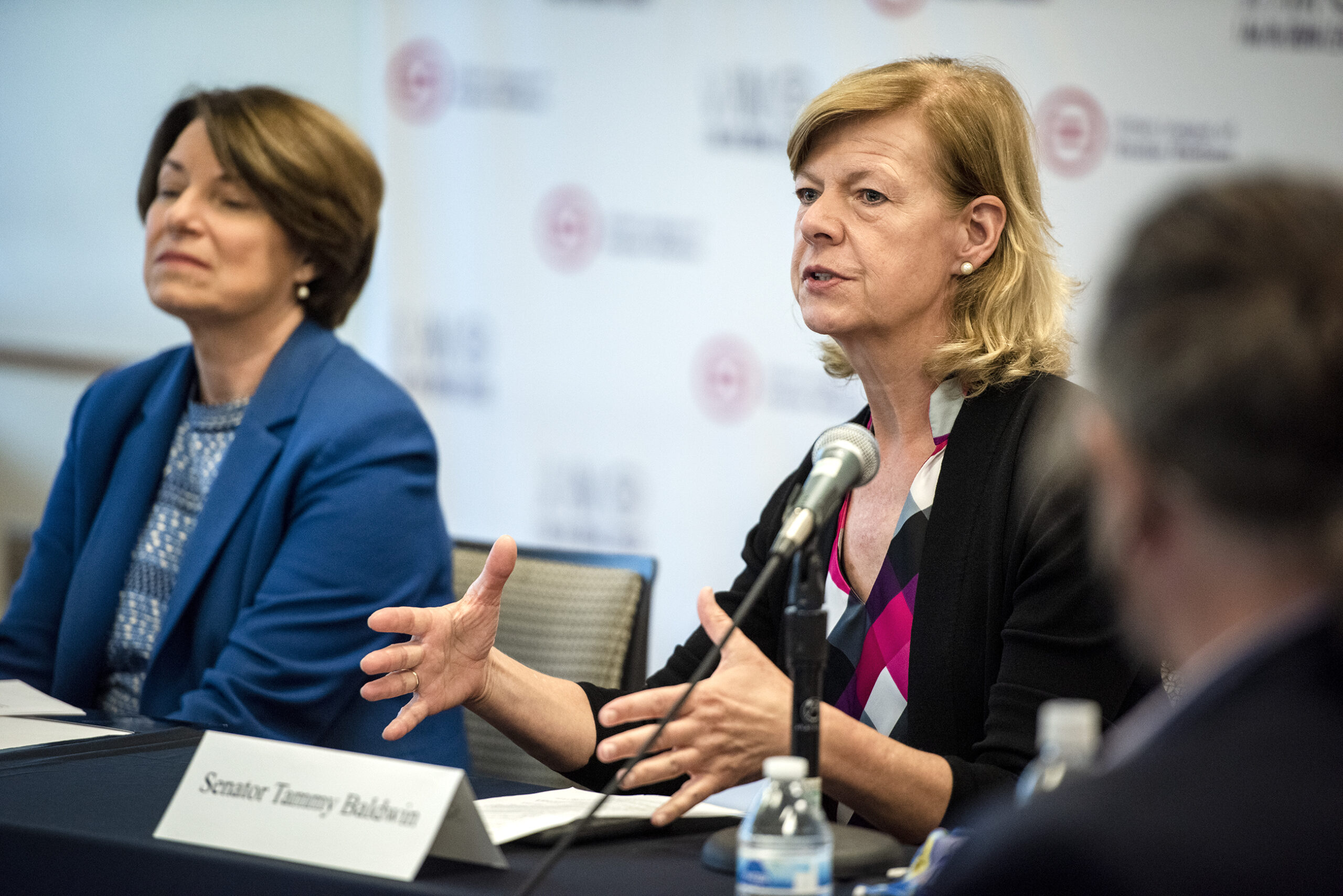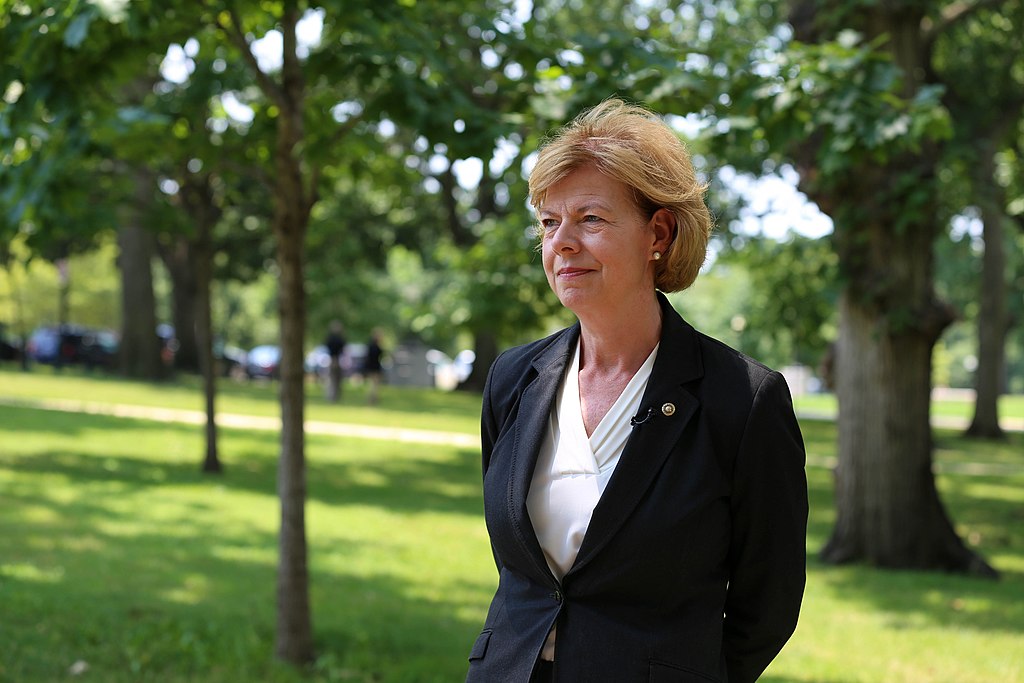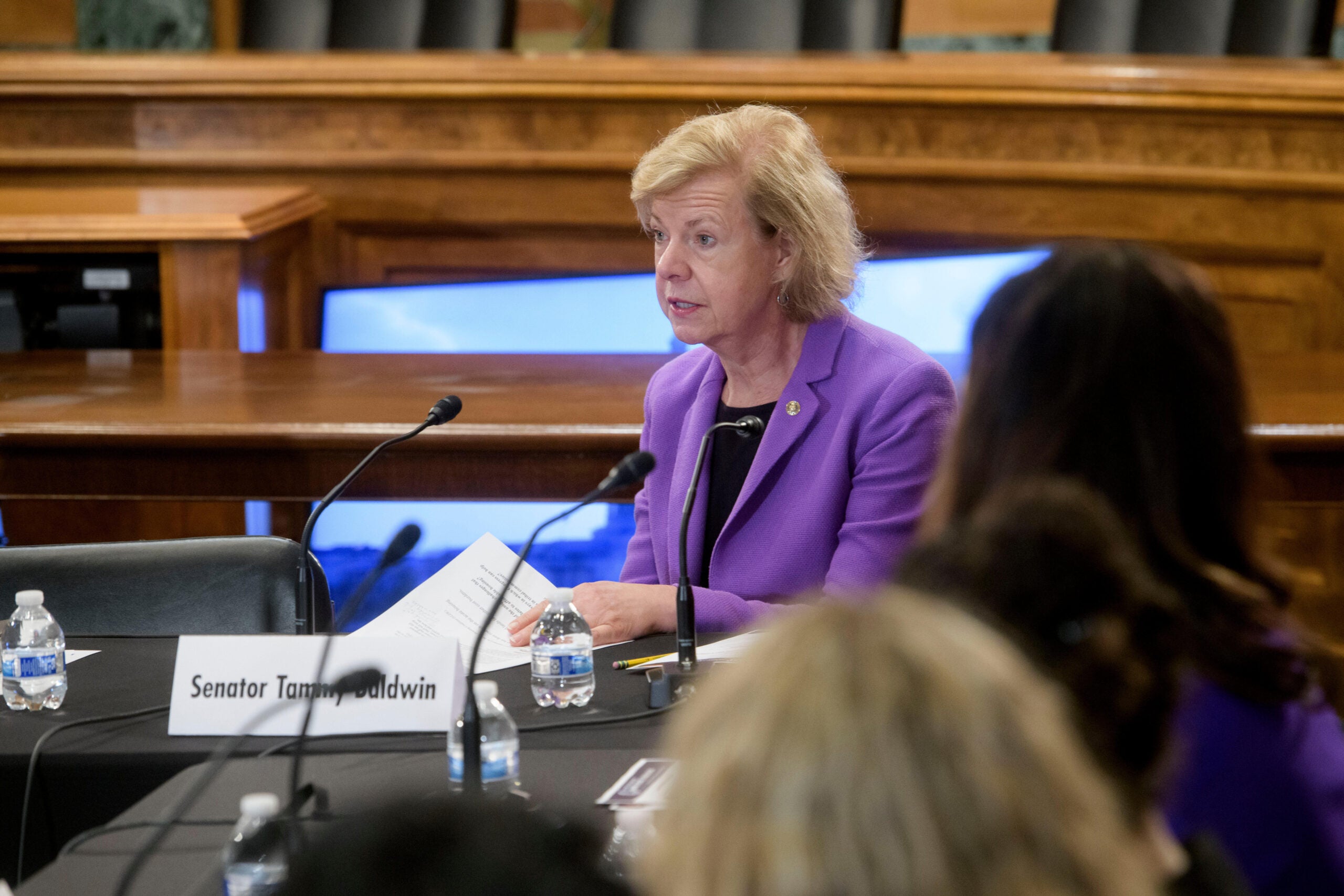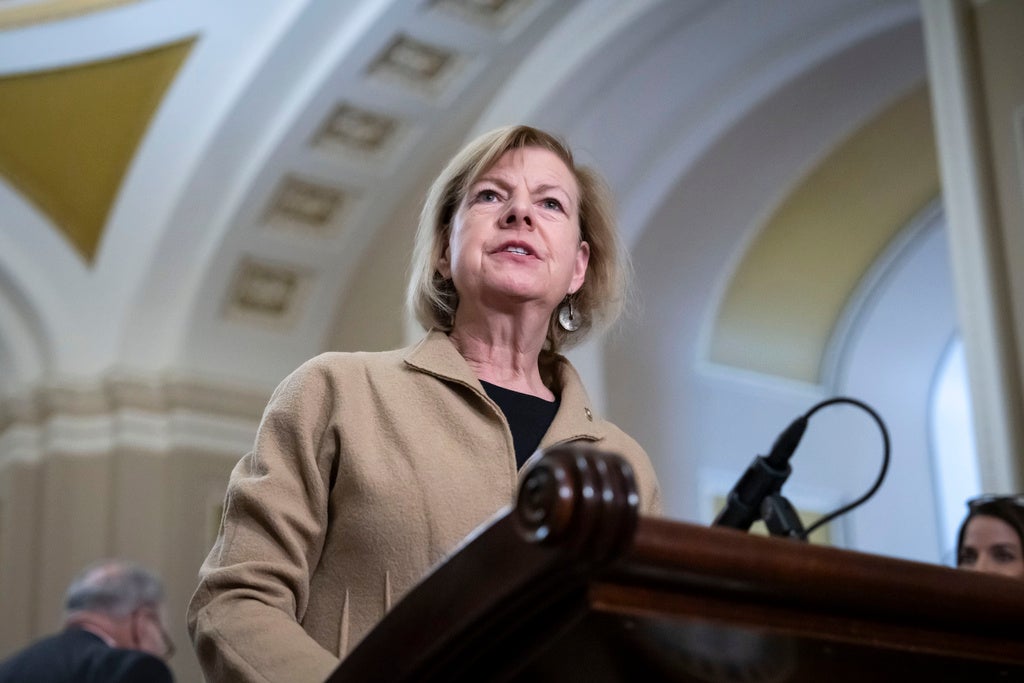Democratic U.S. Sen. Tammy Baldwin announced Wednesday she will seek reelection, a widely expected move that made official her bid for a third term in 2024.
“I’m committed to making sure that working people, not just the big corporations and ultra-wealthy, have a fighter on their side,” Baldwin said in a written statement announcing her intentions. “With so much at stake, from families struggling with rising costs to a ban on reproductive freedom, Wisconsinites need someone who can fight and win.”
Baldwin won her first election to the U.S. Senate in 2012, defeating former Republican Gov. Tommy Thompson by nearly 6 percentage points. In 2018, she defeated former Republican state Sen. Leah Vukmir by almost 11 percentage points.
News with a little more humanity
WPR’s “Wisconsin Today” newsletter keeps you connected to the state you love without feeling overwhelmed. No paywall. No agenda. No corporate filter.
At this point in the election cycle, it’s unclear who Republicans will field to run against her, but in a written statement, the National Republican Senatorial Committee offered a glimpse at the message the party may use against her.
“Tammy Baldwin has voted against tougher penalties for violent criminals, stood with Democrats to destroy American energy independence, and rubber-stamped Joe Biden and Chuck Schumer’s reckless spending at every turn. She’s a reliable vote for the far left, not a senator Wisconsin can count on,” said NRSC spokesperson Tate Mitchell.
While no Republicans have officially declared to run against Baldwin, Franklin businessman Scott Mayer has said he is considering the race. Others who haven’t ruled out a Senate bid include U.S. Rep. Mike Gallagher, Madison businessman and former U.S. Senate candidate Eric Hovde, former Lt. Gov. Rebecca Kleefisch and former Milwaukee County Sheriff David Clarke.
Jessica Taylor, who tracks U.S. Senate races for the Cook Political Report, said in an interview with Wisconsin Public Radio that Baldwin begins this election cycle as the presumed favorite.
“We rate this race and will continue to rate it ‘Lean Democratic,’” Taylor said, referring to Cook’s system for assessing political campaigns. “I think that she has proven certainly that she can win in a divided state.”
Taylor said for Republicans to compete against Baldwin, they’d need to nominate someone who is palatable to voters in a general election, not just in a Republican primary.
“Congressman Mike Gallagher is the one who I think national Republicans would prefer to see,” Taylor said.
Taylor said the 2024 U.S. Senate map is “brutal” for Democrats, who will have other incumbents defending their seats Ohio, West Virginia and Montana, a trio of red states.
“The question is, how high will (Wisconsin) end up ranking on Republicans’ lists because they have better opportunities?” Taylor said.
If Wisconsin Republicans nominate a polarizing nominee to face Baldwin, Taylor said it could take a state like Wisconsin “off the map.”

The election landscape has changed since Baldwin’s last election
The election landscape will be different for Baldwin in 2024 than it was in her previous runs for office, and over the past year, the fight over abortion has loomed especially large.
When the U.S. Supreme Court struck down Roe v. Wade, it reinstated Wisconsin’s pre-Civil War abortion ban, making the issue a rallying cry for Democratic voters. In the Wisconsin Supreme Court election earlier this month, Judge Janet Protasiewicz, the candidate backed by Democrats, campaigned on her support for abortion rights, winning a lopsided 11-point victory. But once Protasiewicz takes office, there’s a chance the court could overturn the abortion ban, potentially before Baldwin’s next election.
Baldwin alluded to that possibility while talking to reporters in Eau Claire Wednesday, where she was highlighting a federal grant at Chippewa Valley Technical College.
“They’ll look at that issue, I suspect,” Baldwin said of the state Supreme Court. “But even if they do and strike that law down, there will still be a whole bunch of other laws on the books in the state of Wisconsin. And there are still sadly colleagues of mine from the Republican Party in Congress who want a national 15-week ban.”
Baldwin said Protasiewicz’s win was a huge first step in the fight over abortion rights.
She said she wanted to continue that momentum by getting her Women’s Health Protection Act signed into law at the federal level.
“Which would codify Roe versus Wade and prevent states from erecting other barriers and obstacles to a woman’s freedom and rights,” Baldwin said.
This will be the second time Baldwin has run in a presidential election, the first coming in 2012 when former President Barack Obama was at the top of the ticket. President Joe Biden has indicated that he will seek reelection next year, and in Wisconsin, Biden’s approval numbers remain low.
The state Republican Party drilled home Baldwin’s Biden connections in their own statement, blaming her for voting “lockstep” with the president.
“The Biden-Baldwin ticket will be on the hot seat with Wisconsin voters, in a state where four of the last six presidential elections were decided by less than 1 percent and Biden’s approval ratings are upside down,” said Republican Party of Wisconsin spokesperson Rachel Reisner.
Taylor said Republican U.S. Sen. Ron Johnson’s victory in 2022 showed that Wisconsin remains a close state, but she said Baldwin’s ability to run up big numbers in urban areas and perform better than other Democrats in rural counties puts her in a strong position.
“There’s a good chance that she could run ahead of Biden,” Taylor said.
In the last Marquette University poll of Wisconsin voters taken last year, 41 percent of registered Wisconsin voters approved of the job Biden was doing in office, compared to 54 percent who did not approve.
In that same survey, 37 percent had a favorable opinion of Baldwin, compared to 37 percent who viewed her unfavorably. But 25 percent either didn’t know or hadn’t heard enough about Baldwin to give an answer.
Editor’s note: WPR’s Rich Kremer contributed to this report.
Wisconsin Public Radio, © Copyright 2026, Board of Regents of the University of Wisconsin System and Wisconsin Educational Communications Board.




